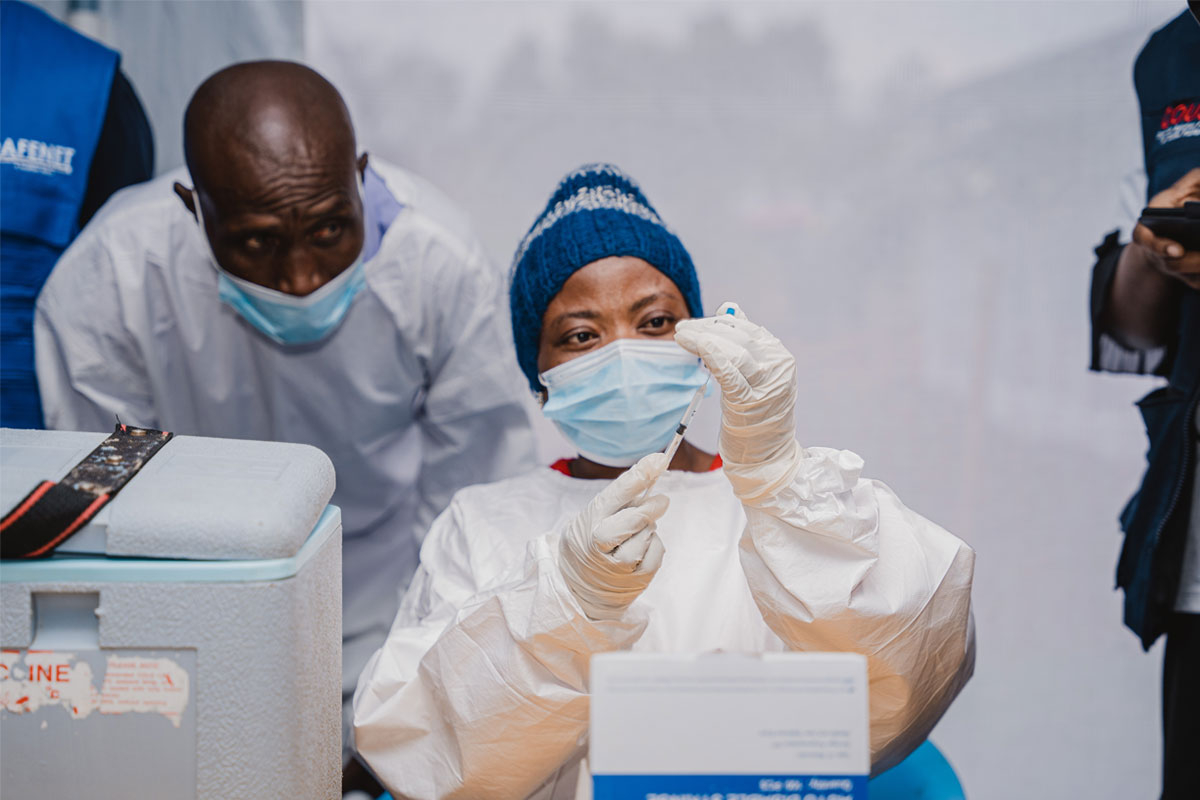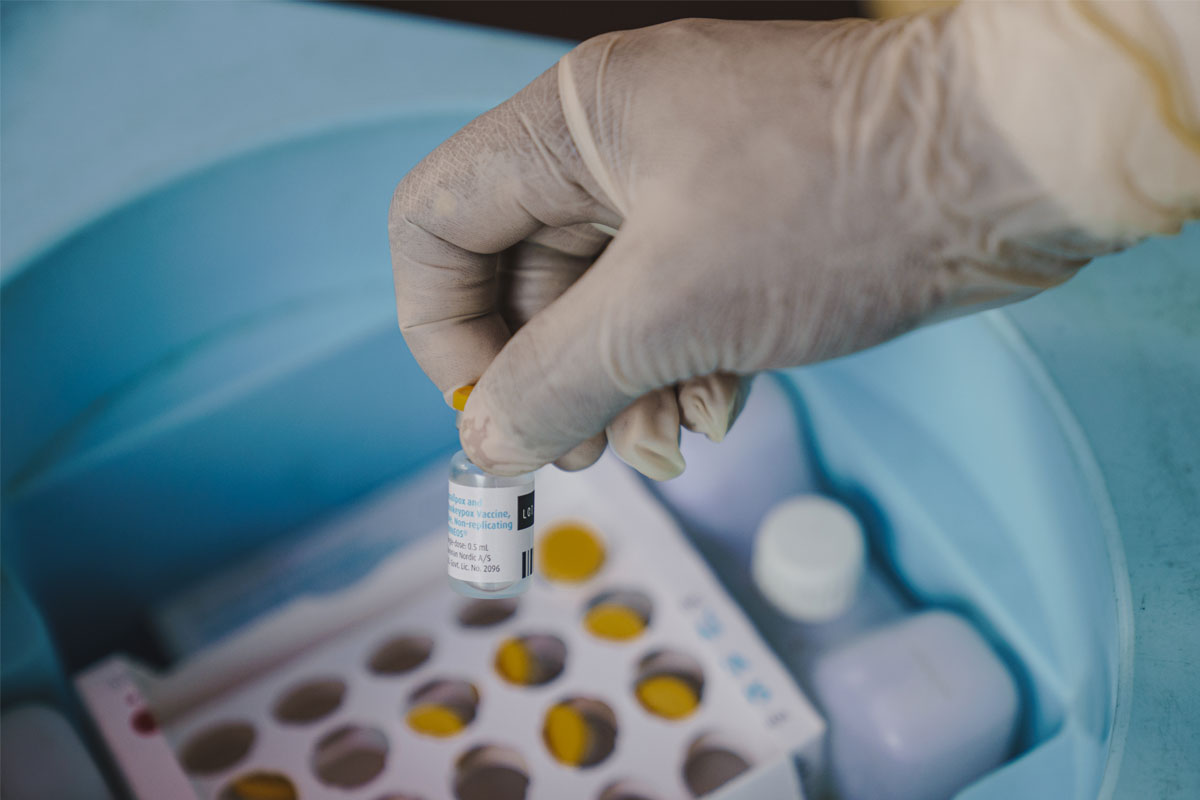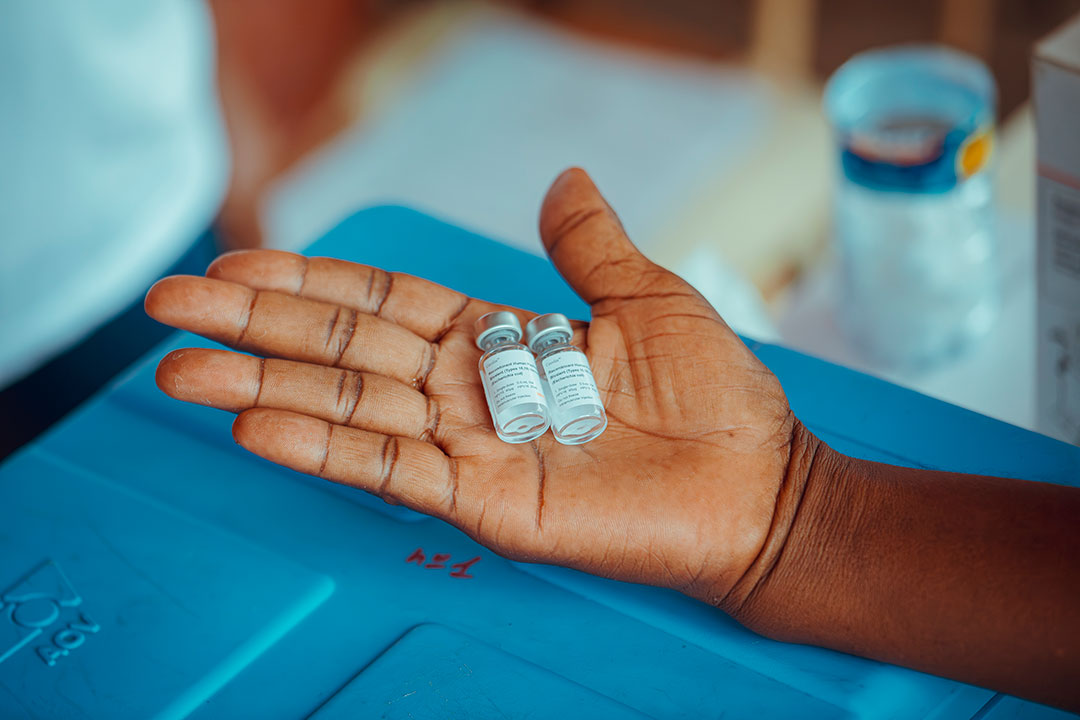How a new global vaccine stockpile will help to counter the ongoing mpox threat
Mpox still poses a major risk, but rapid delivery of vaccines could help halt outbreaks before they spread.
- 19 August 2025
- 4 min read
- by Priya Joi

A year after the World Health Organization (WHO) declared mpox a public health emergency of international concern (PHEIC), the virus has spread rapidly across Africa, and the global response remains inadequate, WHO says. However, the Gavi Alliance is setting up an mpox vaccine stockpile that will help accelerate the global response to future outbreaks of the disease.
There was no WHO-prequalified vaccine available when mpox was first declared a PHEIC in August 2024, although WHO granted one to Bavarian Nordic’s modified vaccinia Ankara-Bavarian Nordic (MVA-BN) vaccine, JYNNEOS, a month later. Immediately, Gavi began to finance and help deliver mpox vaccines to affected countries in Africa, with 1.23 million doses delivered since September 2024 through Gavi-supported partnerships.
On top of this, the establishment of an emergency stockpile of mpox vaccines was approved by Gavi’s Board in July 2025. Although this isn’t expected to be operational until mid-2026, it nevertheless marks an important next step towards combatting the threat posed by the disease, says Simon Allan, Global Health Security lead on Gavi’s Market Shaping team: “It will ensure that we can respond to outbreaks with much greater speed as we’ll already have the vaccines in the warehouse. And it will help us to better shape the market for mpox vaccines by giving manufacturers clear demand, ensuring a reliable supply of appropriate vaccines for lower-income country settings.”

African Continental spread
Mpox first came to widespread global attention in July 2022, when the WHO declared a multi-country outbreak of Clade 2b mpox - a strain that predominantly spreads through close sexual contact - a PHEIC. Less than a year later, the emergency was declared over as cases seemed to decline.
However, a few months later, a new virus strain – clade 1b – had begun spreading so rapidly that by August 2024, WHO declared another PHEIC.
Speaking at the time, WHO Director-General, Dr Tedros Adhanom Ghebreyesus described the emergence of a new clade of mpox, its rapid spread in eastern DRC, and the reporting of cases in several neighbouring countries as “very worrying”.
“On top of outbreaks of other mpox clades in DRC and other countries in Africa, it’s clear that a coordinated international response is needed to stop these outbreaks and save lives,” he said.
Have you read?
By the end of July 2025, 21 African countries were experiencing mpox outbreaks, according to WHO. These outbreaks have been largely driven by clade 1b, with a distinct outbreak of 2b in Sierra Leone, both of which have a case fatality ratio of 0.5%, WHO says. A third strain, Clade 1a, is more deadly, especially in children in the Democratic Republic of the Congo (DRC) with a case fatality rate of 2–3%.
Vaccination efforts
WHO reports that between January and July 2025, 30,000 cases of mpox were confirmed, which is double that for the same period last year.
Reassuringly, this is less than during the outbreak’s peak in 2022 (when WHO reported over 80,000 confirmed cases over the year), and cases are declining. Nevertheless, WHO cautions that it retains the highest level of health alert because it warns that “sub-optimal surveillance is very likely leading to undetected transmission.”
Vaccines are a critical intervention in the mpox outbreak, but robust surveillance, data collection, case management and community engagement across affected Africa is urgently needed too.
In addition, DRC, which has biggest number of cases, is experiencing armed conflict that is disrupting healthcare, with hundreds of mpox patients fleeing clinics this year after being caught in the midst of conflict.
Vaccines are a critical intervention in the mpox outbreak, but robust surveillance, data collection, case management and community engagement across affected Africa is urgently needed too.
How Gavi is supporting mpox vaccine delivery
Gavi has been one of the biggest donors to the mpox response. Since September 2024, it has leveraged its First Response Fund and expertise from the COVID-19 pandemic response to mobilise resources and partnerships quickly for mpox.
Countries that have received mpox vaccines from Gavi are: Central African Republic, Côte d’Ivoire, DRC, Kenya, Liberia, Nigeria, Rwanda, Sierra Leone, Uganda and Zambia. In the next months, Ghana, Guinea and Malawi will also receive mpox vaccines via Gavi.
The Alliance has also provided emergency cash grants of almost US$ 5 million to DRC, Rwanda, Liberia, Uganda and Nigeria to support local vaccine roll-out and administration, while Gavi’s First Response Fund – which pre-positions up to US$ 500 million of surge financing for vaccine procurement during the early days of a pandemic or health emergency – had given US$ 6.7 million to support local vaccine roll-out and administration, as of late 2024.








